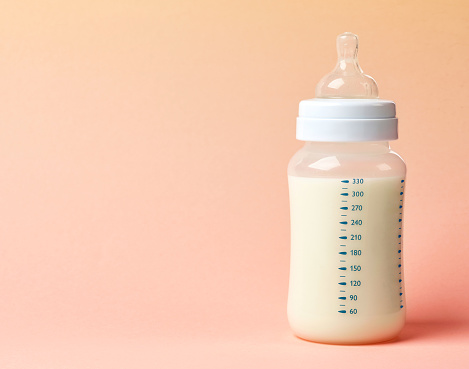CULLMAN, Ala. – The American Academy of Pediatrics and other worldwide medical organizations recommend exclusive breastfeeding for babies for six months followed by continued breastfeeding as complementary foods are introduced, then continuation of breastfeeding for one year or longer as mutually desired by mother and infant.
Unfortunately, many women experience challenges when it comes to breastfeeding—mammary congestion, soreness, engorgement—and may even experience low milk supply. These women are especially affected by the infant formula shortage since they have few alternative methods of providing food for their baby. Also, the benefits of breastmilk for babies far outweighs those of formula. Since breastfeeding is recommended exclusively for six months, most women prefer to act in accordance with the recommendation to give their baby the most nutrients possible.
Many mothers turn to online milk sharing sites such as Human Milk 4 Human Babies and Eats on Feets—forums for donors with extra milk to give to those with low supply.
The Academy of Breastfeeding Medicine’s 2017 Position Statement on Informal Breast Milk Sharing includes, “Informal breast milk sharing is becoming increasingly common as 21st century families’ desire to feed their infants with human milk increases.”
Sites like Eats on Feets take no responsibility for vetting donors and allow recipients and donors to make arrangements between themselves. Their Facebook group site reads, “We assert that families are capable of making informed choices and of sharing human milk with one another in a safe and ethical manner. It is in the spirit of informed choice that milk sharing on this page shall occur, and all women posting here shall take complete responsibility for the outcome of milk sharing.”
The site also released a recent statement concerning the baby formula shortage, “Most coverage of the current formula shortage as well as official suggestions from most, otherwise, reputable organizations only include where to look for formula, reiterating to not feed homemade formulas, goat or cow’s milk, to not dilute, etc. There is typically no mention of the obvious: that families with human milk to feed their own baby can safely help families in need.”
The FDA advises against the practice of online sharing due to the unlikelihood of proper vetting of donors and the milk often being unsuitable for consumption after arrival; however, the choice is left to the discretion of the mothers. It is recommended that before accepting donor milk to first consult a healthcare provider and to have a conversation with the donor about their exposure to infectious diseases and milk storing and handling habits.
For tips on safe storage and handling visit, https://www.cdc.gov/breastfeeding/recommendations/handling_breastmilk.htm#:~:text=1%20Clearly%20label%20the%20breast%20milk%20with%20the,to%2024%20hours%20when%20you%20are%20traveling.%20. By following the guidelines set by the CDC and FDA, those who wish to donate or receive breastmilk can do so in a safe and informed way.
For mothers looking to alleviate any breastfeeding concerns, Cullman Regional Maternity Center offers a Breastfeeding Help Line at 256-737-2221 where patients can schedule an appointment with a lactation consultant.
Copyright 2022 Humble Roots, LLC. All Rights Reserved.




















